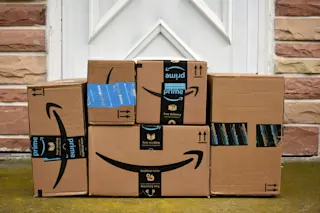When a household runs out of coffee or aluminum foil, replacing those products can be as simple as talking to a smart home speaker, like Alexa or Siri. Within a few moments, products can be ready to ship from Amazon or a Walmart shopping cart can be updated. Depending on the item and location, those products can be delivered same-day.
Rapid delivery is a relatively new phenomenon. It started when Amazon introduced Prime in 2005 and promised two-day shipping. When Amazon entered the grocery business in 2017, it made same-day delivery possible. One industry analyst wrote we had entered a new era. Instead of price wars, it was time wars. Who could get it to the consumer the fastest?
“Amazon effect” is associated with increased expectations for quick delivery. These desires have pressured, if not irritated, retailers. One study on furniture sales found that delivery time is a major factor ...















